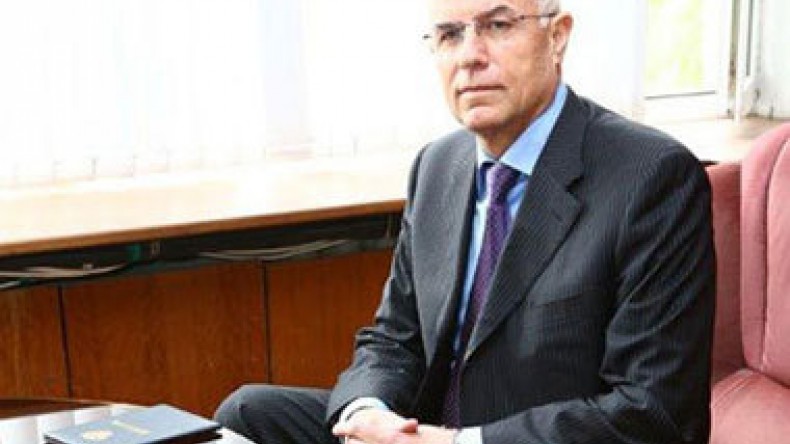
Gagik Ghazinyan: New draft Constitution of Armenia prepared, public debates lie ahead
The main chapters (chapters 1-7) of the draft Constitution of Armenia are to be approved at the upcoming sitting the Expert Commission on Constitutional Reforms on July 13 and made public by July 15, Panorama.am learned from Gagik Ghazinyan, member of the Expert Commission, Dean of the Department of Law of Yerevan State University.
He said the results of discussions of the draft Constitution’s chapters 4-7 with Venice Commission experts were examined today at the sitting of the Expert Commission on Constitutional Reforms. Based on expert proposals, a statement was adopted about holding public debates in the near future, Ghazinyan said.
According to him, after the main part of the draft Constitution is published, proposals will be accepted and public debates organized regarding the published chapters. Should acceptable proposals be made, there may be changes in the draft Constitution, Ghazinyan stressed.
In his words, the public debates will continue until late July, after which the draft will be submitted to the president. If approved by the head of state, the draft will be presented to the National Assembly of Armenia in August.
Ghazinyan did not indicate the estimated time for holding debates in National Assembly. He just said that the date of a referendum may be fixed only in case of the draft’s adoption by parliament. During that period, the Commission on Constitutional Reforms does not bear responsibility anymore, he clarified.
Ghazinyan said the draft Constitution has been developed based on the parliamentary model of government. Some principal approaches were formulated in the Constitution – a 100% proportional electoral system will be established, with the government to be formed by the parliamentary majority and the candidate proposed for prime minister to be mentioned in the proportional voting lists of political forces.
“There can be no restrictions concerning candidates for prime minister. It is not a presidential election. The matter concerns a political force: if the society trusts it, then the political force receives a majority in the parliament and may freely elect the premier and the president,” Ghazinyan said adding that there is no need to concentrate on one person or another.
When asked what other ‘revolutionary changes’ are proposed by the new draft Constitution’, G. Ghazinyan replied: “Such an assessment can also be given regarding solution of issues of the judicial system, that is, issues related to courts and the Supreme Council of Courts, which I believe is also of fundamental importance in terms of ensuring the independence of courts, they effective functioning and accountability to society. Fundamental changes are expected with regard to courts and the Council of Justice that will be renamed the Supreme Council of Courts”.
Commenting on rumors that the constitutional reforms are aimed at ensuring the authorities’ reproduction, G. Ghazinyan said that the Commission on Constitutional Reforms was tasked with developing a model that will efficiently promote the country’s development.
‘’We are presenting a proposal. It is not clear how much it will help or hinder,” he said noting that if there is a will, the model of government cannot in some way or other be an obstacle to finding a mechanism of reproduction.
“So there is no need to concentrate on this. If you are a strong opposition force, then you may form a strong political force or alliance based on a good ideology, then get nominated and follow to make sure the elections are held well, voting results are objective, and then assume power,” he advised.
Ghazinyan said that within the Commission on Constitutional Reforms itself the change in the model of government was not perceived unambiguously, and there were some reservations. “Not everyone was 100% in favor. If people are experts, they are likely to hold different opinions, regardless of their status. Everyone here is an expert in their own area,” the dean of Law Department said.
As was reported, on October 15, 2014, the Concept of Constitutional Reforms in Armenia (drafted by the Commission on Constitutional Reforms under the Armenian President), as well as the Venice Commission’s conclusion in English and its unofficial translation into Armenia were published. The Commission Head, Chairman of Armenia’s Constitutional Court Gagik Harutyunyan said a referendum on constitutional reforms in Armenia will not be held until 2016.
Newsfeed
Videos






























